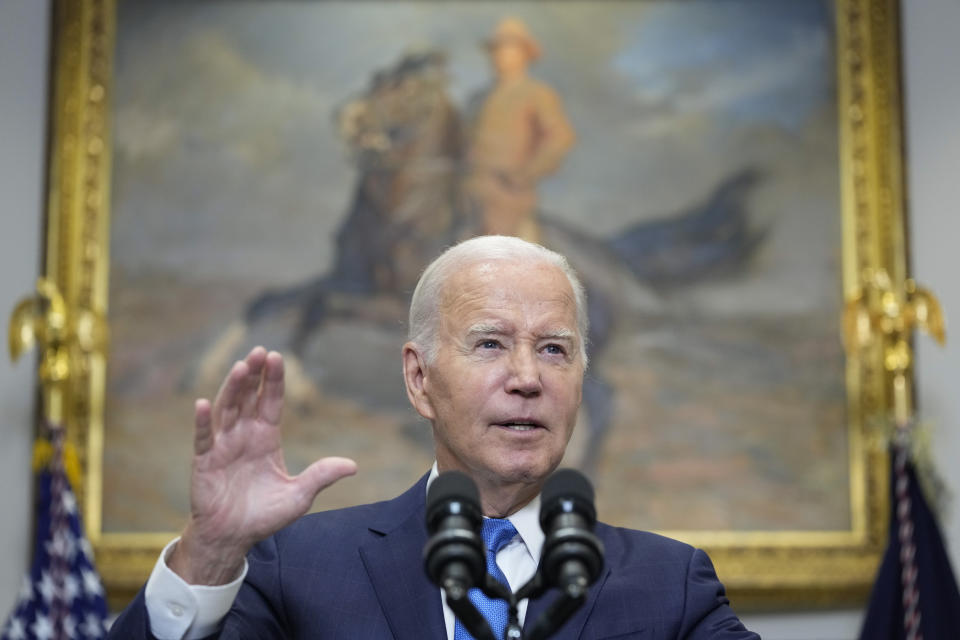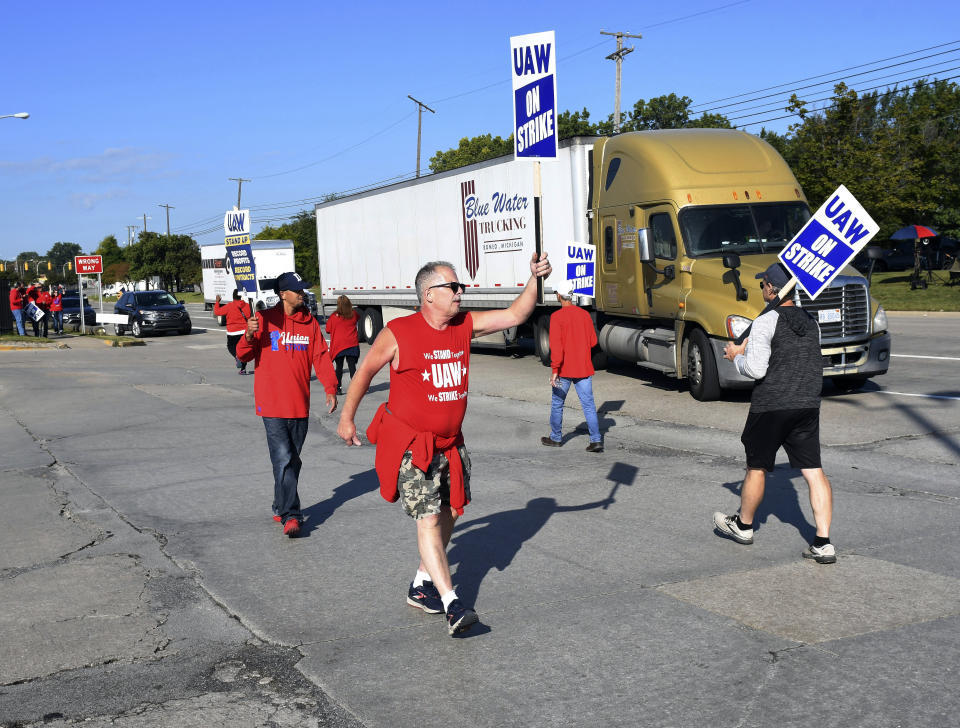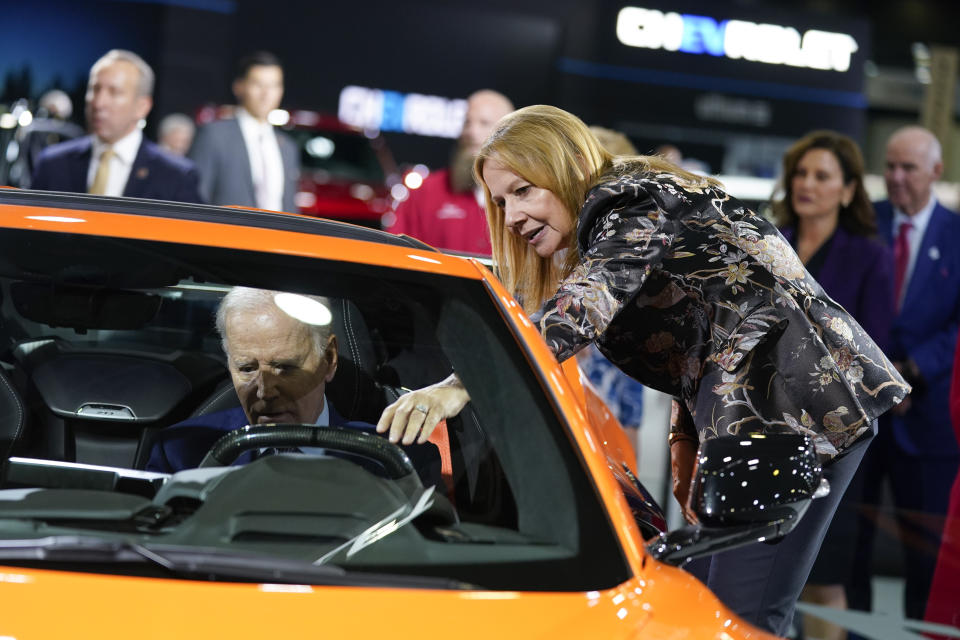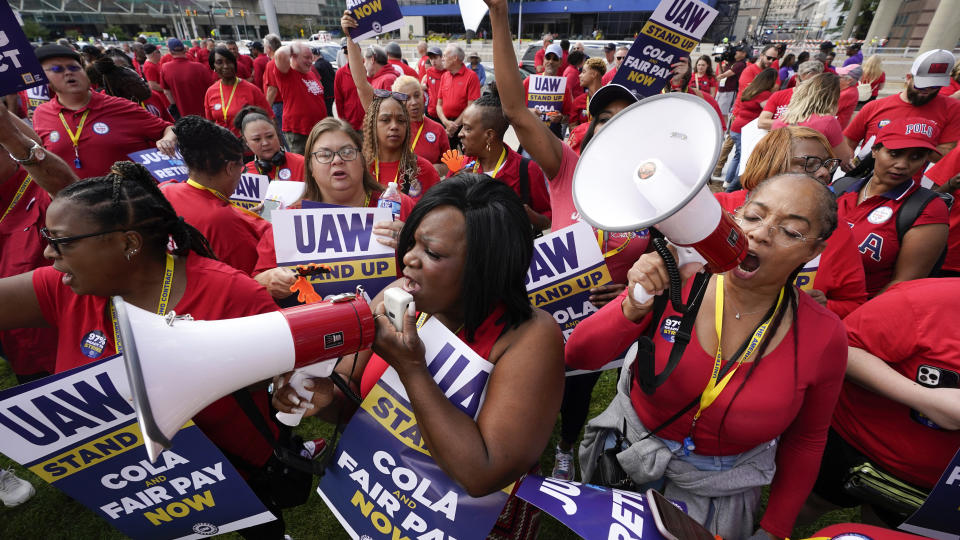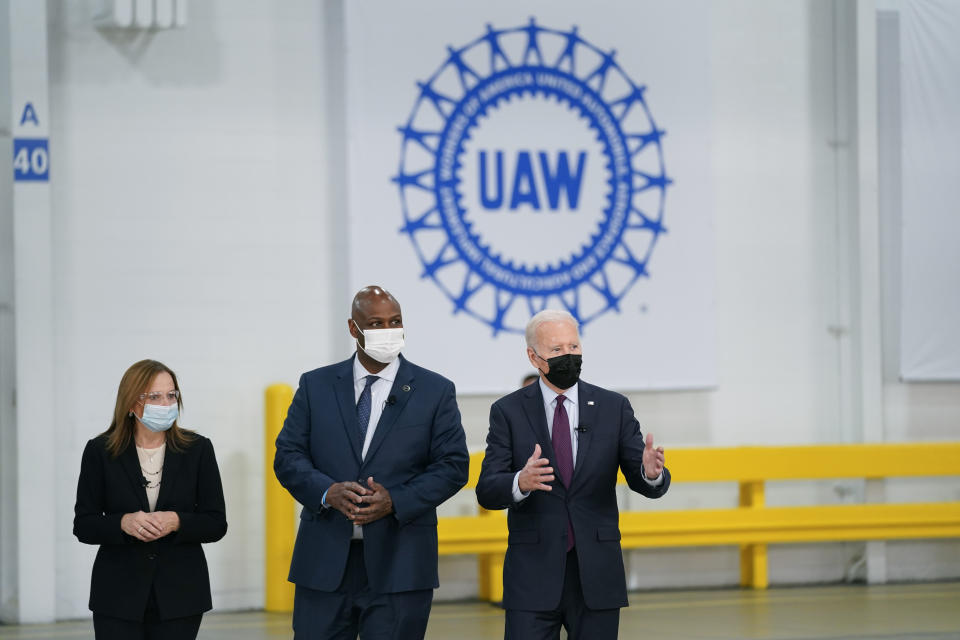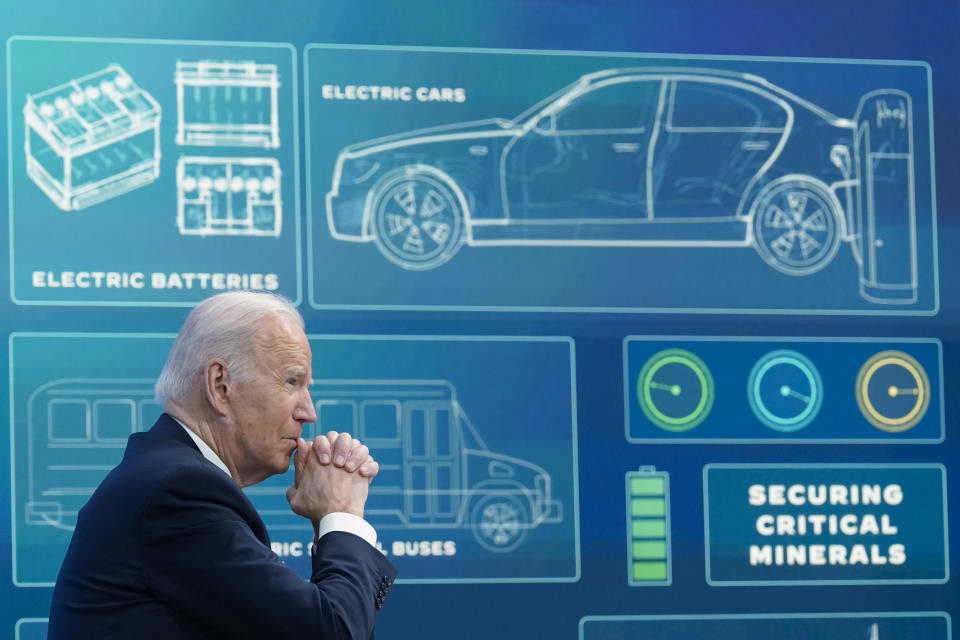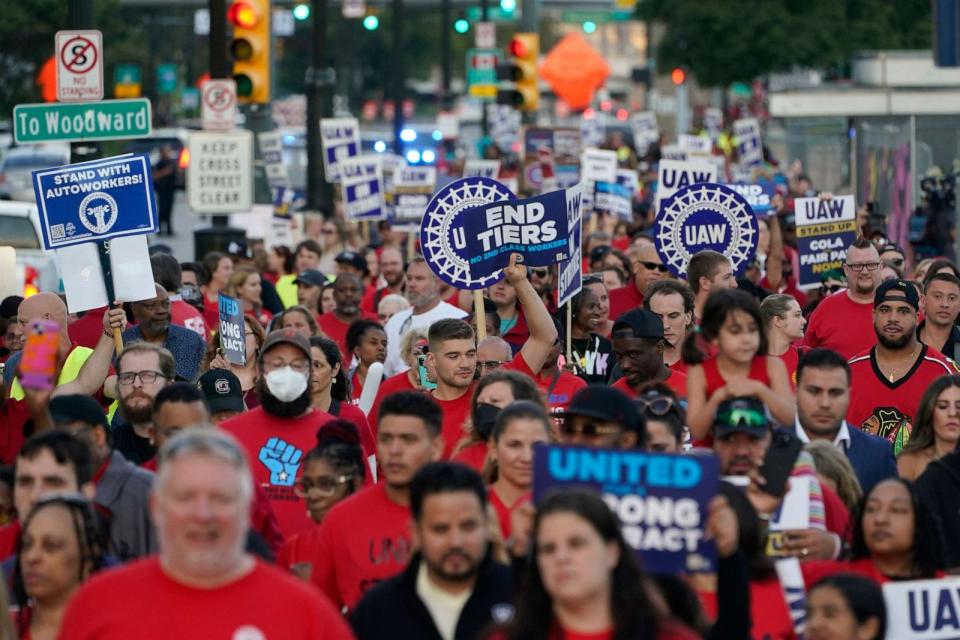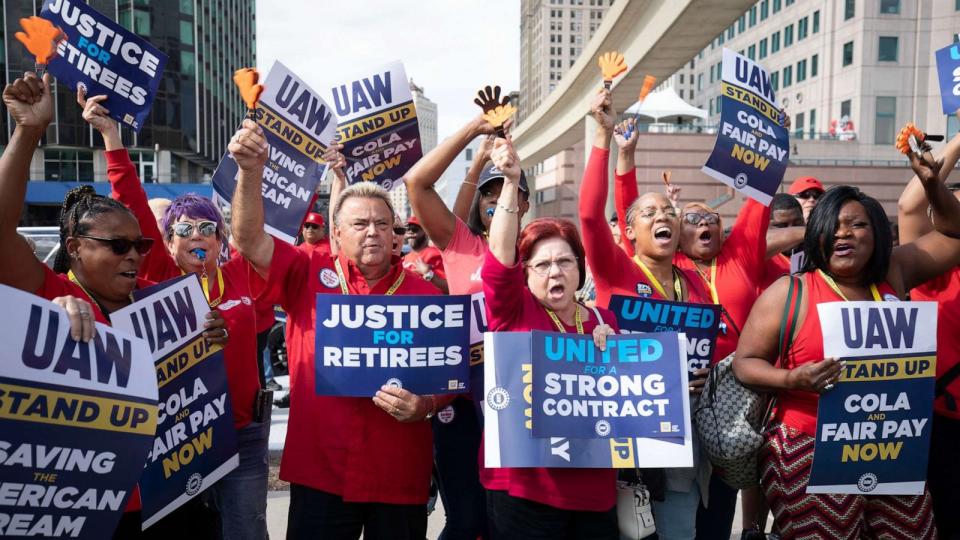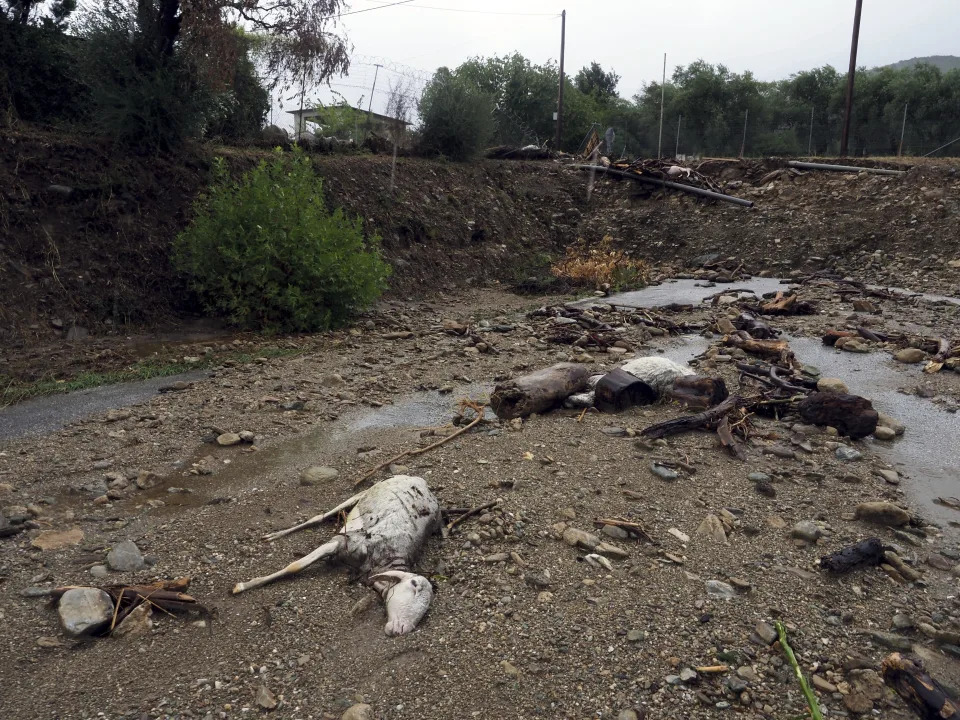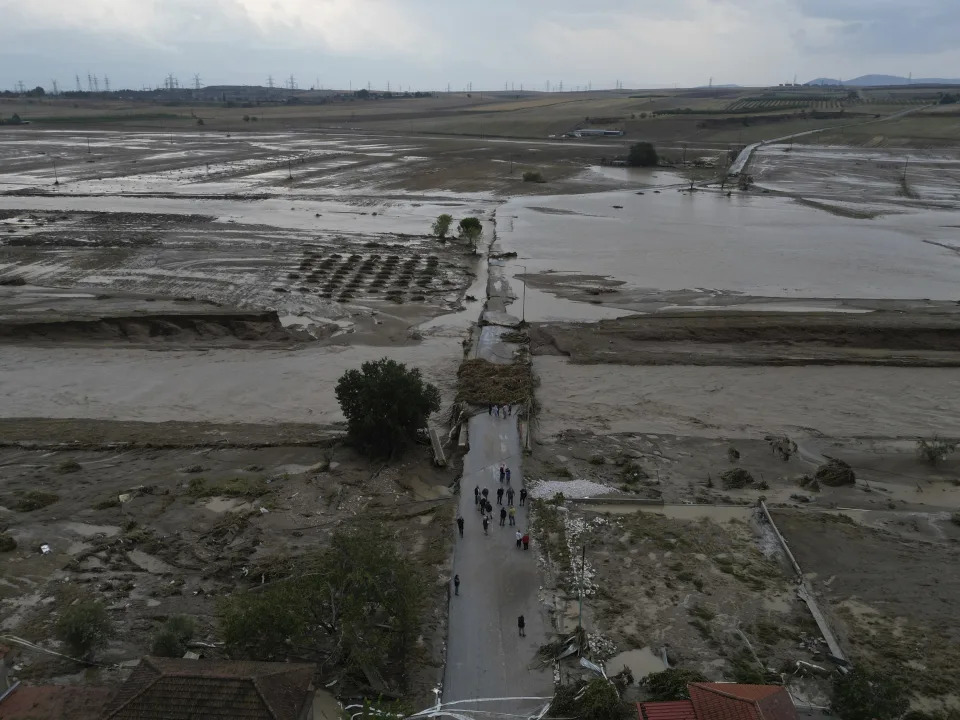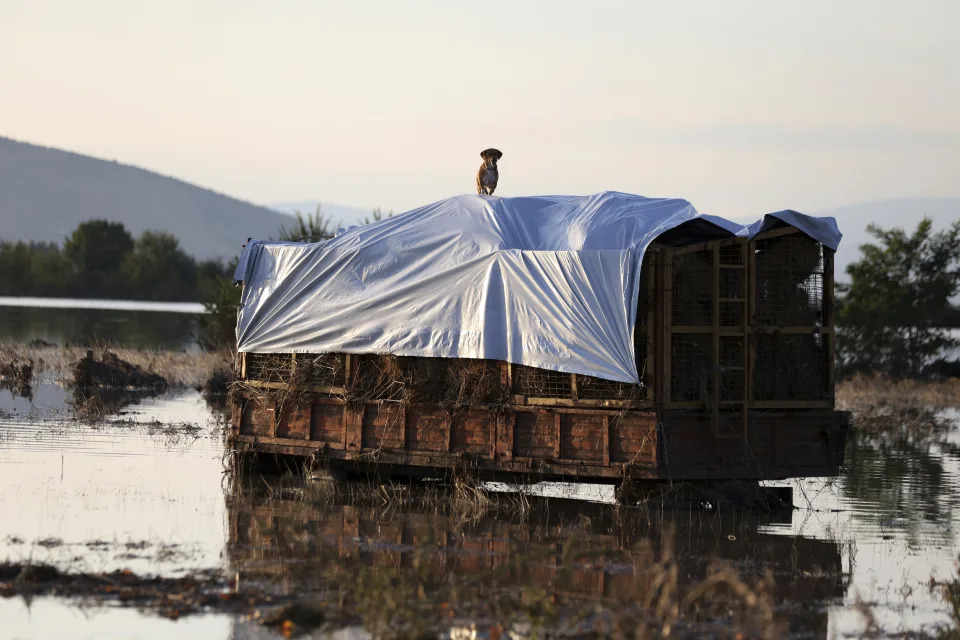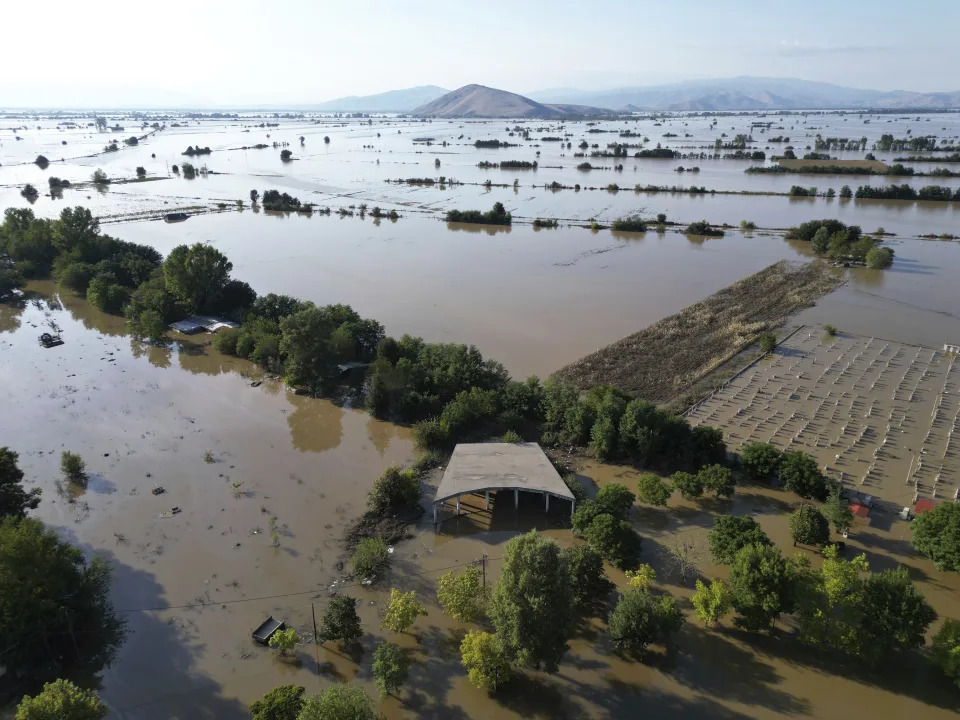Marley Jay
Thu, September 14, 2023
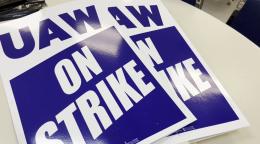
Many of the core issues in the labor dispute between the United Auto Workers and the Big Three U.S. automakers are familiar: salary increases, sick days and pay grades.
While much of the attention has gone to those key issues, a major undercurrent of the dispute is the transition to electric vehicles and away from cars and trucks with internal combustion engines — those that run on gasoline and motor oil. The change, which might be the biggest in the history of the auto industry, has major implications for the business and for its workers.
U.S. automakers say they sold almost 14 million new cars and trucks in 2022. For the first time, hybrid and all-electric vehicle sales topped 1 million that year, according to the Bureau of Transportation Statistics.
That's a milestone, but it also shows that the shift to EVs is still in its early stages.
Present-day issues like pay for workers are obviously paramount in the negotiations. The current contract between the UAW and the Big Three expired at 11:59 p.m. Thursday, and the UAW union officially went on strike. Around 13,000 UAW members walked out at three manufacturing facilities: one Ford plant, one General Motors plant, and one Stellantis plant.
It’s the first time the 88-year-old UAW has gone on strike against all three companies at the same time, and it says more workers may walk off the job if a deal isn’t reached soon.
Since the last contract went into effect in 2019, annual gross profits have risen by 34% at Ford and 50% at General Motors. Stellantis, which formed when Fiat Chrysler merged with the French automaker Peugeot in 2021, reported that its annual gross profit rose by 19% from 2021 to 2022.
The UAW wants the new contract to reflect that growth — and, by extension, the growth in executive pay. The new contract, according to UAW president Shawn Fain, should also address the effects of inflation in the U.S.
"I don’t think anyone would disagree that the union and the members should participate in the healthy environment of greater profits for the automakers," said Jeff Schuster, global head of automotive for GlobalData. Schuster added that the auto industry has seen "massive earnings because prices were up" during the height of the pandemic.
That kind of profit growth can cure a lot of ills, and the Big Three have agreed to raise their employees' pay. But Schuster says the companies are in a tricky position, despite their outsize earnings.
An uncertain future for Detroit's Big Three
As EVs come to predominate, GM, Ford and Stellantis will have to build and revamp manufacturing plants, do more research and development, train new workers and source new raw materials, even as they continue to work on new car and truck models.
It's very expensive to build an auto plant, and there are bound to be some bumps and mistakes in that process.
Meanwhile, the Big Three have a newer rival that is already doing a pretty good job at all of that.
"I think everyone is trying to play a bit of catch-up with Tesla," Schuster said.
Erin McLaughlin, senior economist specializing in transportation and infrastructure for The Conference Board, said the UAW is trying to understand what that will look like for present and future union members.
“A lot of the Big Three are opening EV plants in the Sun Belt, which are less pro-union states and where foreign companies have put their plants,” McLaughlin said. That can weaken the union, so it serves as a cost-saving strategy.
Ford, GM and Stellantis all partnered with South Korean companies to build plants that manufacture EV batteries. Jobs at those facilities are non-union and lower-paid. The UAW says that needs to be addressed in the next contract, not least because in the coming years, more people will work at those plants — and fewer will probably be needed to build cars and trucks.
While union members likely want the largest wage increases they can get, Schuster said that the Big Three are mostly competing against non-unionized companies, where workers generally earn less. Tesla is the only U.S. car company whose workers don't have a union.
If the automakers decide they're paying too much for labor, they could move more jobs overseas, putting U.S. employees out of work.
Both of those factors are concerns for the union, because it could erode its membership or bargaining power over time. McLaughlin links that to a national trend of reduced union membership.
“One of the reasons we’re seeing these labor discussions now is a shrinking employee labor base, and we’re seeing an increase in manufacturing at the same time we’re seeing low unemployment,” she said.
Schuster said the negotiations are that much more complicated because new cars and trucks have grown more expensive in recent years. Kelly Blue noted the average transaction price of a new vehicle was $48,334 in July. EVs cost more as well, generally because the large batteries that power them are expensive.
The development and buildout of electric vehicles and the factories and infrastructure needed to ramp up production cuts into the automakers' profits, but passing the cost on to consumer might be tricky when prices have already risen in recent years.
"It really comes down to how much more can you add to the price of a vehicle where consumers are already struggling with vehicle pricing," he said.
This industrywide shift is certainly front-of-mind for many UAW members and the carmakers. How these challenges play out in the long term is unclear.
This article was originally published on NBCNews.com
